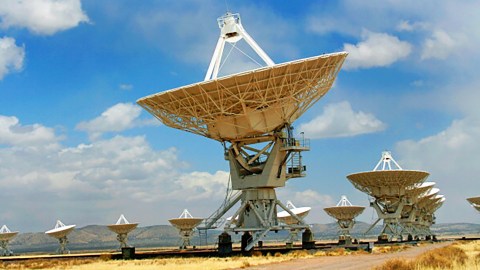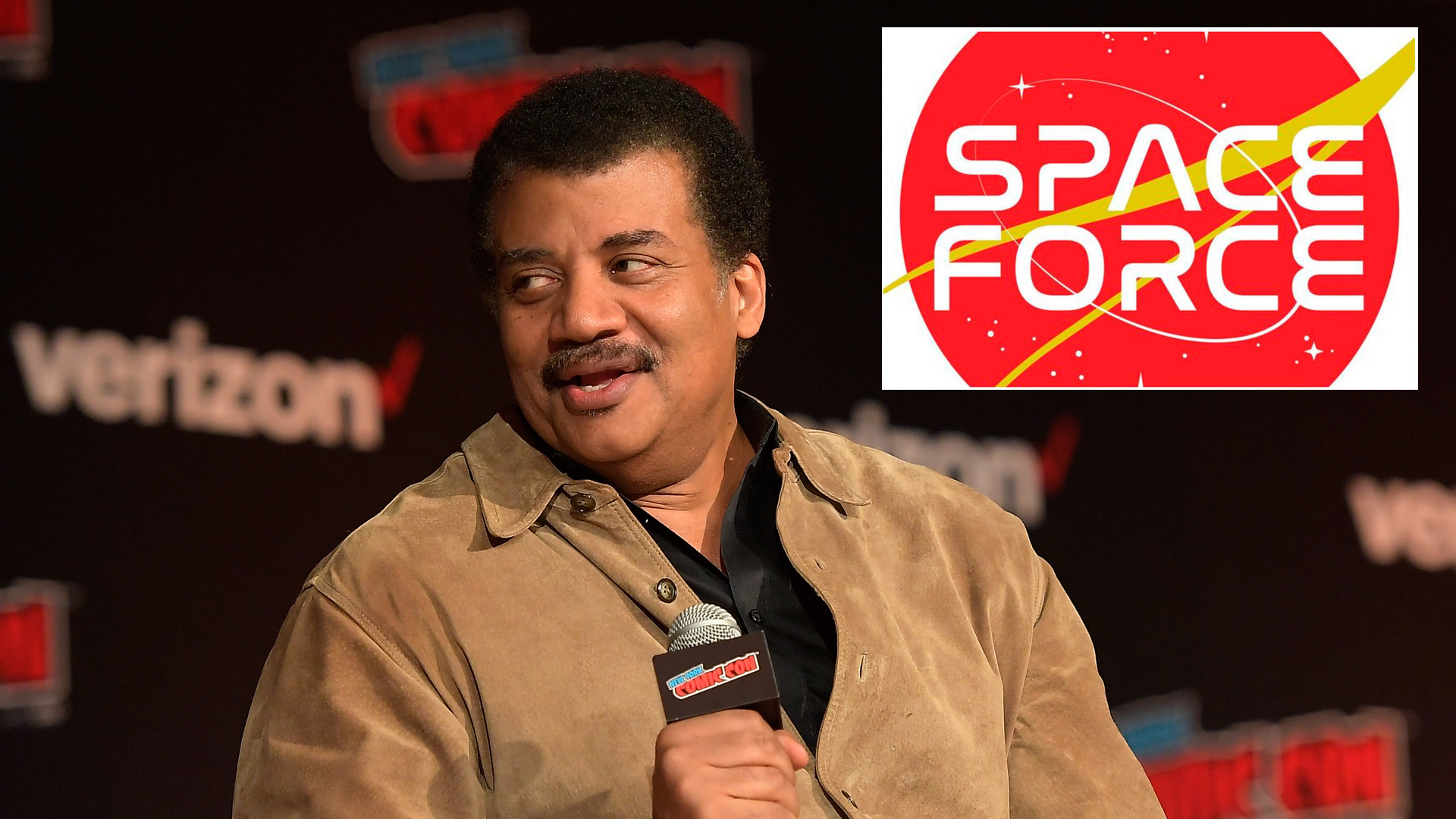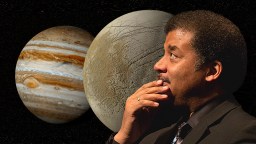Why Don’t We Hear From Aliens? They May Encrypt All Their Data.
When Neil deGrasse Tyson recently sat down with infamous whistle blower Edward Snowden, the topic of alien encryption came into the mix.

Sign up for Big Think on Substack
The most surprising and impactful new stories delivered to your inbox every week, for free.
When Neil deGrasse Tyson sat down with infamous whistle blower Edward Snowden, besides talk of Isaac Newton and the periodic table, the topic of alien encryption came into the mix. That’s right, aliens could be talking to us, but we can’t break (or even recognize) the code. Snowden purports that the perplexing question of why extraterrestrials have never reached out to us is really not a question at all — any and all attempts at contact would most likely be “indistinguishable from cosmic microwave background radiation” because all sentient societies naturally evolve to encrypt their communications.
(Interview starts at 1.24)
Sign up for Big Think on Substack
The most surprising and impactful new stories delivered to your inbox every week, for free.





